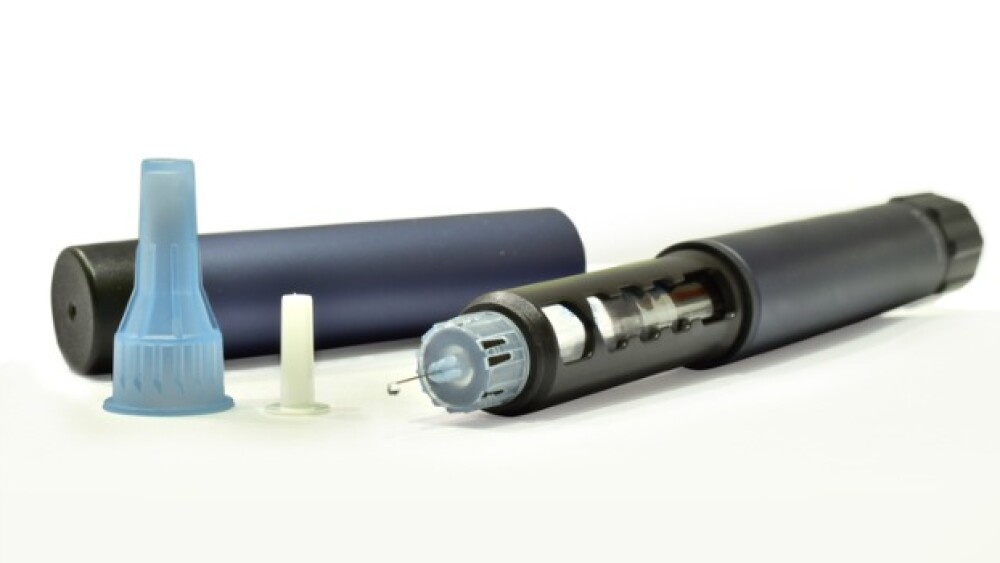AbbVie’s Humira will now face competition from new biosimilars, including Boehringer Ingelheim’s Cyltezo, Celltrion’s Yuflyma, Organon and Samsung’s Hadlima, and Sandoz’s Hyrimoz.
Pictured: Pre-filled injector device/iStock, sunnychicka
New, lower-price biosimilars to AbbVie’s Humira (adalimumab) have launched in the U.S. in the last couple of days, following in the steps of Amgen’s Amjevita (adalimumab-atto), which entered the country in January.
Monday, New Jersey-based Celltrion announced that its biosimilar Yuflyma (adalimumab-aaty) was available to patients in the U.S. for a monthly list price of $6,576.50. By comparison, the cost of two subcutaneous kits of Humira ranges from $7,299 to $14,588 depending on dosage, according to medicine information platform Drugs.com.
Yuflyma comes as either an auto-injector or a pre-filled syringe.
Ahead of Celltrion are Organon and Korean partner Samsung Bioepis, which Saturday launched Hadlima (adalimumab-bwwd) in the U.S. Hadlima has a sale price of $1,038 for a carton containing two pre-filled pens or syringes. According to the companies, this is an 85% discount compared to Humira’s list price.
Saturday, Sandoz’s biosimilar Hyrimoz (adalimumab-adaz) also hit the U.S. market and is offered under the company’s Sandoz One Source program, which is designed to provide patients with educational, reimbursement and affordability support.
Hyrimoz also comes in a citrate-free, high-concentration formulation that cuts the injection volume by 50% and could lead to fewer injections in certain patients, according to Sandoz.
Also launched Saturday was Boehringer Ingelheim’s Cyltezo (adaliumam-adbm), which is the “first and only FDA-approved interchangeable biosimilar to Humira” in the U.S., Stephen Pagnotta, BI’s executive director and biosimilar commercial lead, said in a statement.
When a biosimilar receives the FDA’s interchangeability designation, it may be used in place of the branded product without needing to change the prescription. Before earning this designation, biosimilars must prove in a trial that they can be switched with the reference medicine without increased safety risks or worse efficacy.
Sandoz’s Hyrimoz, Organon and Samsung’s Hadlima, and Celltrion’s Yuflyma are all seeking interchangeability.
All four biosimilars are authorized to treat indications for which Humira’s regulatory exclusivity has already lapsed. These include rheumatoid arthritis, Crohn’s disease, plaque psoriasis, ulcerative colitis and hidradenitis suppurativa.
According to a recent study by the Leonard D. Schaeffer Center for Health Policy & Economics at the University of Southern California, biosimilars promote healthy competition and help reduce the price of biologic medicines.
Looking at Genentech’s (Roche) breast cancer therapy Herceptin (trastuzumab), the study found that biosimilars could successfully eat away at the market share of branded medicines while also altering doctors’ prescription patterns.
AbbVie is already feeling the financial effects. In its year-end 2022 earnings summary, the pharma company posted a 22% drop in Humira’s international sales. In the first quarter of this year, revenues slid by 25%.
Tristan Manalac is an independent science writer based in metro Manila, Philippines. He can be reached at tristan@tristanmanalac.com or tristan.manalac@biospace.com.






